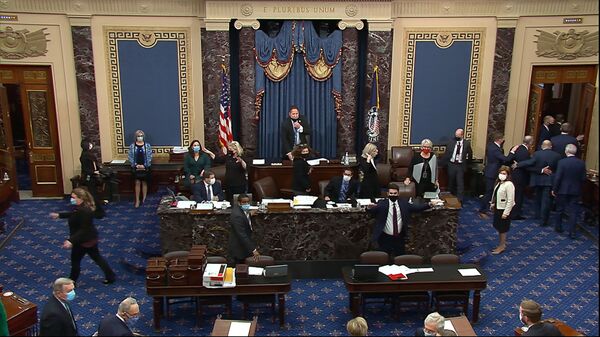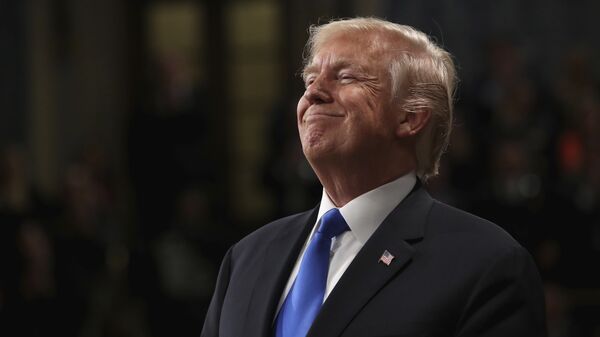The impeachment article for former President Trump’s second impeachment trial will make its way to the Senate on Monday, newly minted Democratic Senate Majority Leader Chuck Schumer announced on Friday.
What Does This Mean?
In accordance with Senate impeachment procedures, the article’s delivery to Congress’s upper chamber will formally trigger the start of the trial against the now ex-president over his alleged “incitement to insurrection” on 6 January. During that event, die hard Trump supporters overran the US Capitol complex amid his claims of widespread electoral fraud in the November election. Trump has dismissed the House's charges against him, having urged supporters to “stay peaceful” and “go home” the day of the riot. The Democrat-controlled House impeached the president over the mayhem on 13 January anyway, just one week before he was set to leave office.
In his remarks Friday, Schumer promised that the Senate trial would be “full” and “fair.” To convict the now former president, the 100-member Senate would need to vote by a 2/3 majority to do so. The post-election Senate, once firmly controlled by Republicans, is now split 50-50, with half of the seats held by Democrats and Democrat-leaning independents, and the other half held by the GOP.

The trial will be historic for two reasons, first – because Trump will be the first president to be tried twice, and second – because it will be the only trial to ever take place after a president has already left office. In recent days and weeks, some Senate Republicans have questioned whether the Senate even has the constitutional authority to try Trump after he has left office.
Constitutional scholars have expressed contradictory opinions, with the Congressional Research Service penning a ‘legal sidebar’ on 15 January confirming that the legislative body can indeed try a former president, while admitting that “the Constitution does not directly address whether Congress may impeach and try a former President for actions taken while in office.” The body suggested that ultimately, “it appears that most scholars who have closely examined the question have concluded” that it is indeed possible.
No president in US history has ever been convicted in a Senate trial following impeachment by the House. The closest a commander-in-chief has ever come to being convicted was Andrew Johnson, who survived conviction in the Senate by one vote in 1868 following a disastrous tenure as president in the post-Civil War period.
Trump was handily acquitted by the Senate in his first impeachment trial in February 2020, with 47 Senators voting to convict and 53 voting to acquit.


